Ensuring Business Travel Safety: Comprehensive Strategies for Secure Journeys

In today’s globalized business landscape, where forging international partnerships and exploring new markets are key to success, frequent travel has become indispensable for professionals seeking to expand their network and foster client relationships. However, each journey presents a unique set of safety challenges that can impact both personal well-being and business outcomes. Organizations and travelers alike must address these challenges proactively to ensure that every trip is not only productive but also secure. This comprehensive guide delves into in-depth strategies to ensure safety during business trips, emphasizing the importance of thorough preparation, heightened awareness, and robust organizational support to navigate the complexities of global travel confidently.
Pre-Travel Preparations
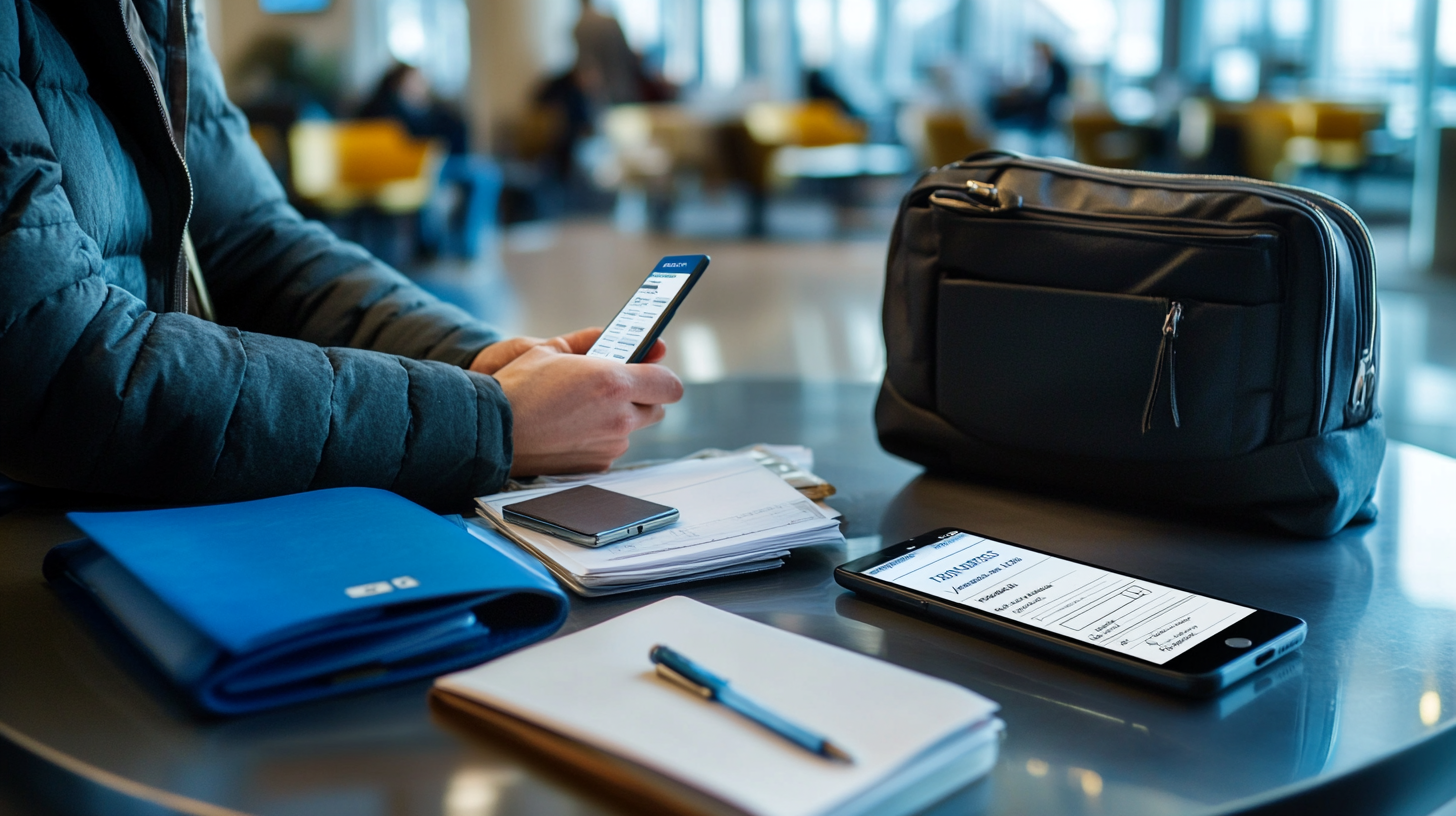
Assessing Destination Safety

Before embarking on any business trip, it’s crucial to assess the safety of the destination thoroughly. This involves delving into research about the local political climate, crime rates, and any recent events that may affect stability. Understanding these factors can prevent travelers from walking into unforeseen dangers. Utilizing resources like Christopherson’s Entry Restriction Database provides up-to-date travel guidelines, helping travelers understand entry requirements and potential restrictions. Additionally, consulting comprehensive travel advisories for business travelers can offer deeper insights into country-specific risks and safety recommendations.
Understanding Cultural Customs and Local Laws

Familiarizing oneself with the cultural nuances and legal regulations of the destination country is essential for any successful business trip. For instance, certain hand gestures or business practices considered normal at home may be offensive abroad. Understanding local customs not only shows respect but also helps prevent unintentional offenses that could lead to legal complications or hinder business negotiations. Being aware of these aspects enhances personal safety and promotes smoother business interactions, fostering trust and rapport with international colleagues and clients. Resources such as detailed guides on international business etiquette can provide valuable information to navigate these cultural intricacies.
Health Considerations
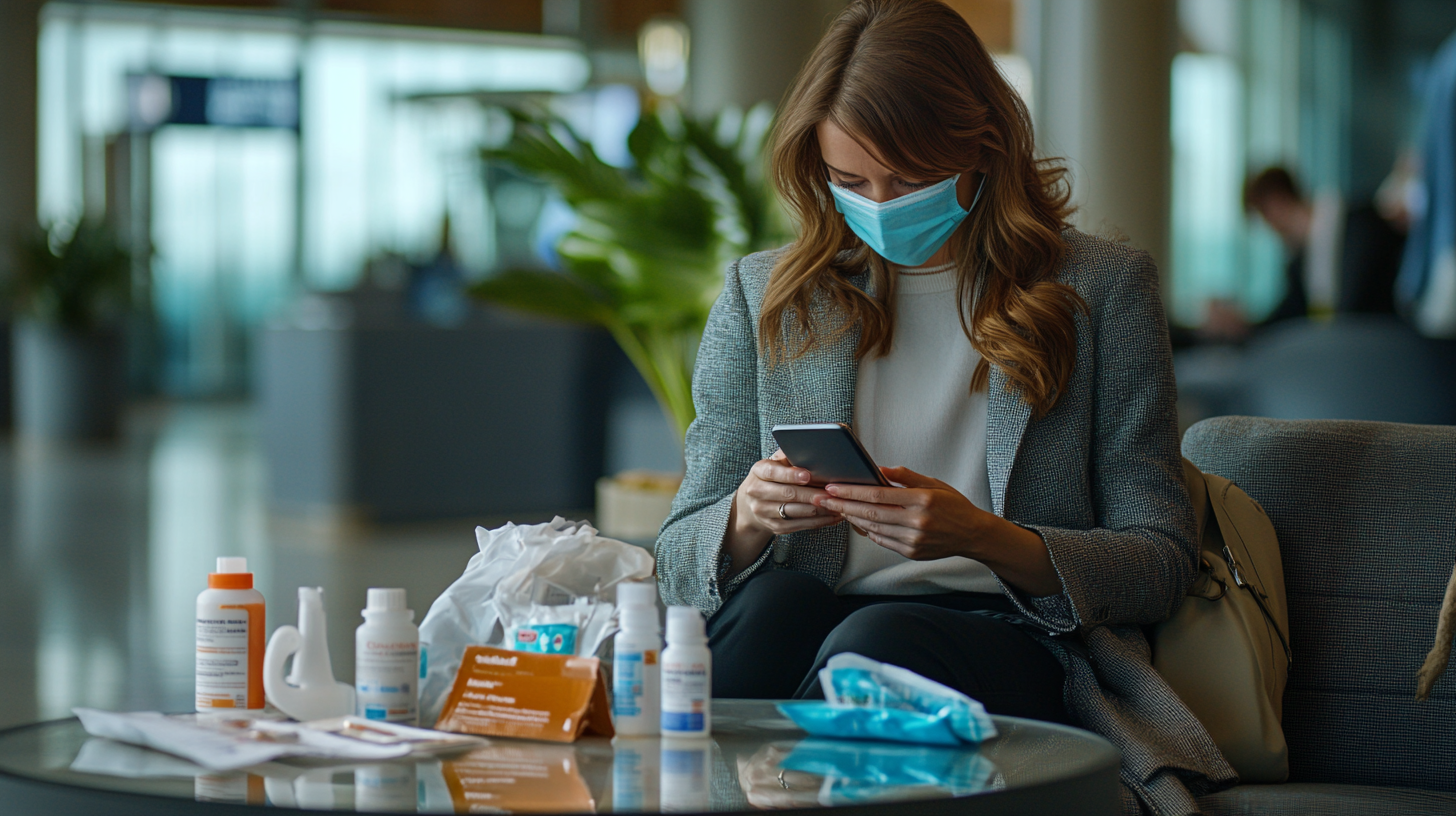
Health risks can significantly impact business travel, potentially derailing important meetings and projects. Prior to departure, check for any health advisories or outbreaks in the destination area by consulting credible sources such as the World Health Organization or the Centers for Disease Control and Prevention. Ensure all vaccinations are up to date, including any recommended vaccinations for the specific region. Understanding COVID-19 requirements is crucial; this includes being aware of testing protocols, vaccination certificates, and quarantine regulations that may be in place. Travelers should consider consuming only fully cooked meals and bottled water from safe sources to avoid foodborne illnesses, which are common in many parts of the world. Even seemingly small precautions, like avoiding ice in drinks unless it’s confirmed to be from safe water, can prevent illness. Utilizing health and safety checklists for international travelers can help ensure all necessary precautions are taken.
Safeguarding Sensitive Information
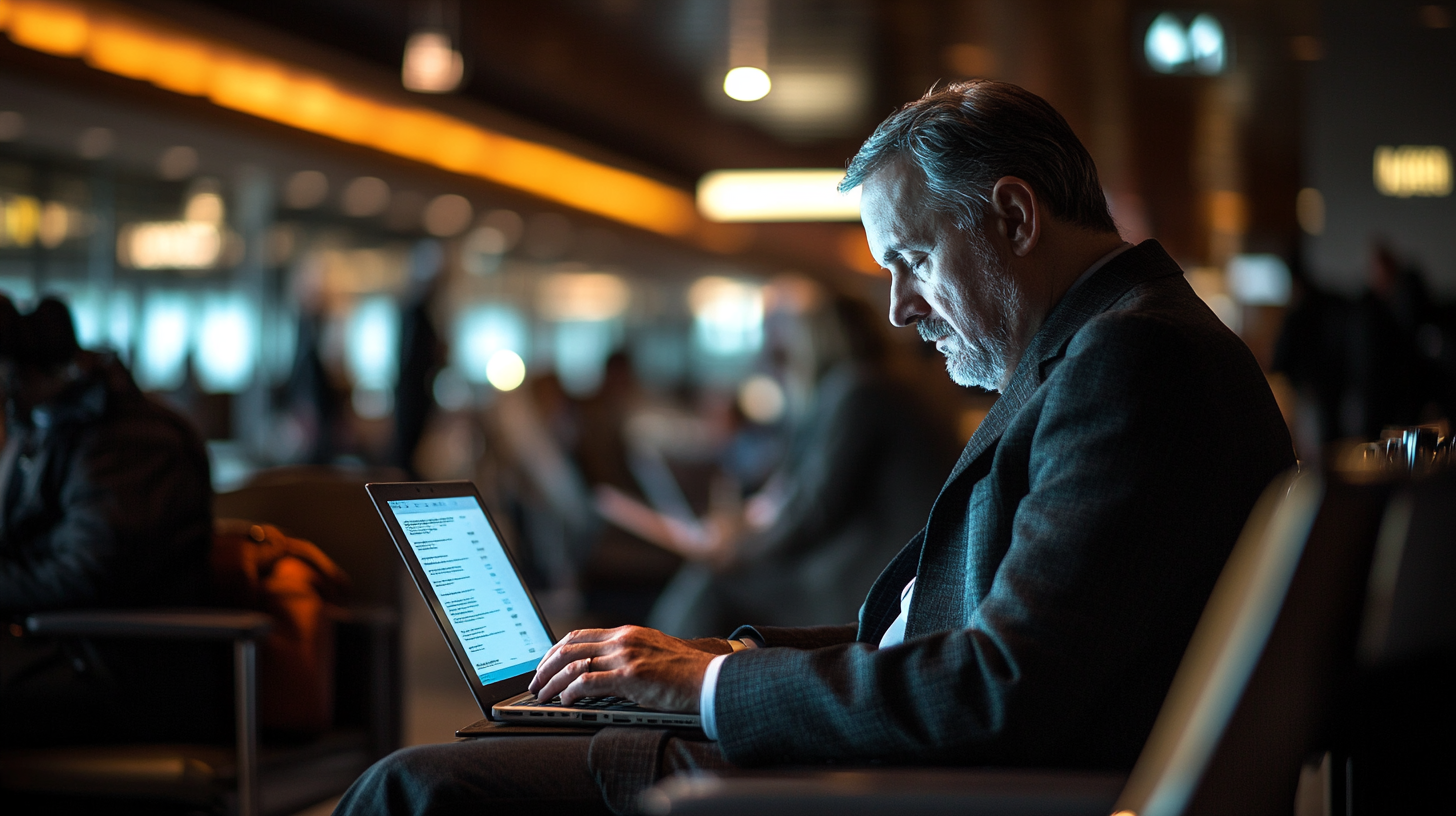
Business travelers often carry sensitive information on laptops, smartphones, and other devices, making them prime targets for competitors or cybercriminals seeking valuable data. To safeguard this information, keep all confidential documents secure, both physically and digitally. Avoid discussing sensitive topics in public areas such as cafes, hotel lobbies, or airplanes where conversations might be overheard. It’s advisable to use encrypted communication channels whenever possible. Using a Virtual Private Network (VPN) can help protect data when accessing the Internet from unfamiliar or unsecured networks, such as public Wi-Fi hotspots. Furthermore, ensure all devices have up-to-date security software installed. Consulting comprehensive cybersecurity guidelines for business travelers can provide additional strategies to protect sensitive information while on the move.
Transportation and Accommodation Safety

Securing safe and reliable transportation and accommodation is a pivotal aspect of business travel safety. Arrange transportation and accommodations in advance through reputable providers to avoid last-minute complications. When possible, use company-approved or vetted services to ensure they meet safety standards. Avoid using unlicensed taxis or rideshares that could pose risks. Consider accommodations that offer additional security features, such as 24-hour front desk service, secure key card access, security personnel, and safe in-room storage for valuables. Staying in well-reviewed hotels in safe neighborhoods can significantly reduce risks. Utilizing trusted travel booking platforms with safety features can assist in selecting accommodations and transportation that prioritize traveler security.
Personal Security Measures
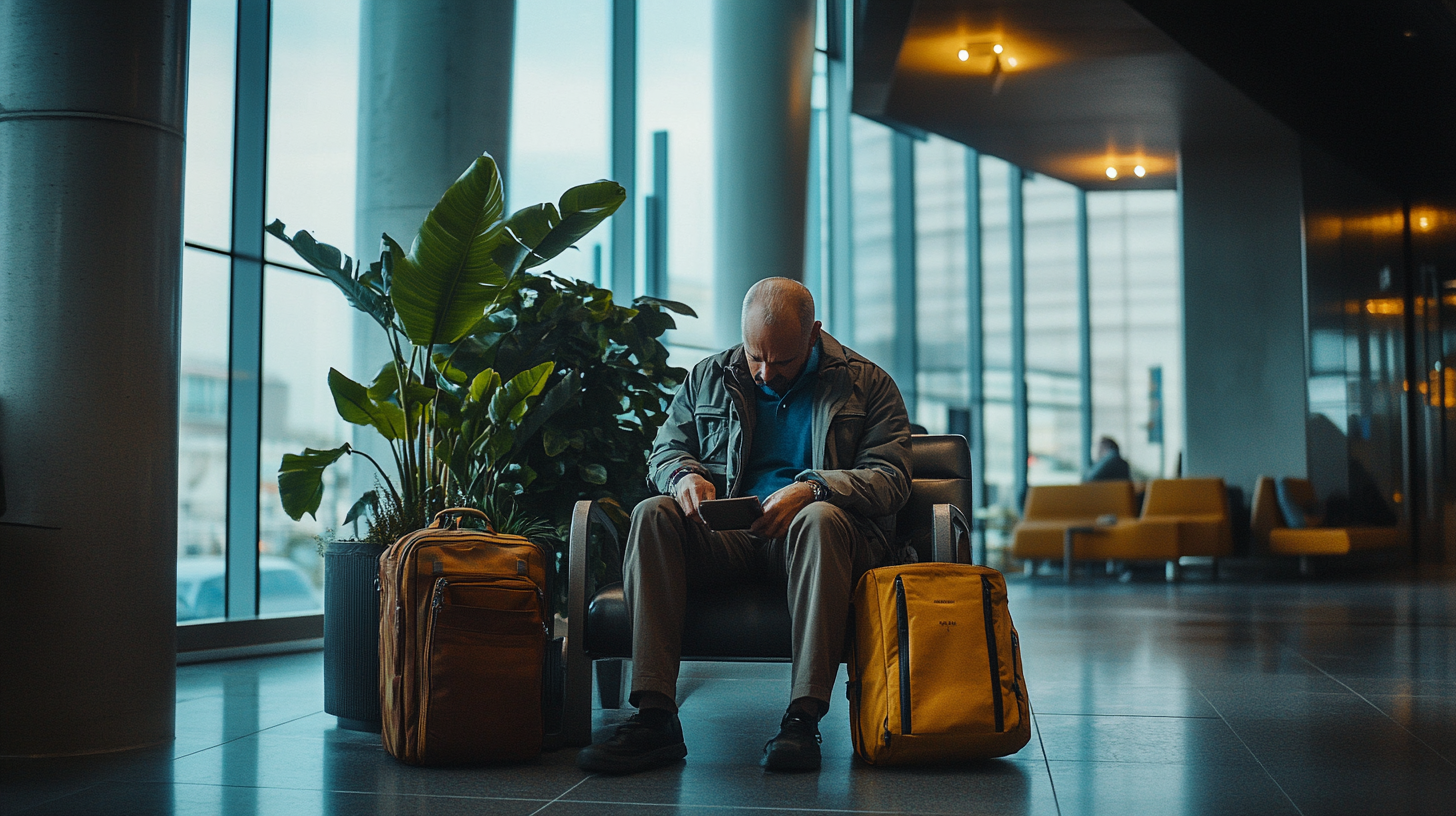
Avoiding Drawing Unwanted Attention

While on business travel, adopting a low profile is a prudent strategy. It’s advisable to blend in as much as possible with the local populace. Avoid wearing expensive attire, flashy jewelry, or carrying luxury accessories that could draw unwanted attention. Such items can make travelers stand out as lucrative targets for theft or scams. Instead, opt for professional yet modest attire appropriate for the local culture. Use travel locks on luggage and consider money belts or concealed pouches to keep passports, credit cards, and cash secure. Being discreet not only enhances personal safety but also allows travelers to navigate new environments without attracting unnecessary scrutiny. Learning effective personal security techniques for travelers can further aid in minimizing risks during the trip.
Food and Water Safety

Consuming contaminated food or water is one of the most common causes of illness among travelers, which can severely disrupt business plans and schedules. To mitigate this risk, opt for fully cooked meals in reputable restaurants or eateries where hygiene standards are visibly maintained. Be cautious with street food, as it may not adhere to the same sanitary practices. Drink bottled water from reputable sources, ensuring that the seal is intact before consumption. Be wary of beverages that contain ice, as the ice may be made from tap water that is not safe to drink. Even brushing teeth with bottled water rather than tap water can prevent illness. Familiarizing oneself with guidelines for avoiding foodborne illnesses while traveling can provide practical tips to maintain health throughout the journey.
Travel Insurance and Document Safety

Purchasing comprehensive travel insurance is a key safety measure that provides a safety net against unforeseen circumstances. Travel insurance can offer assistance in case of medical emergencies, trip cancellations, lost or stolen luggage, and other unexpected events that could incur significant expenses. It’s important to read the policy details carefully to understand the extent of coverage. Safeguard important documents by keeping physical copies of passports, visas, and itineraries in a separate, secure location from the originals. Additionally, storing digital copies encrypted on a secure cloud service or a password-protected device can provide easy access in case of loss. Being prepared with essential travel document checklists for business travelers ensures all necessary paperwork is accounted for and protected.
Communication and Connectivity
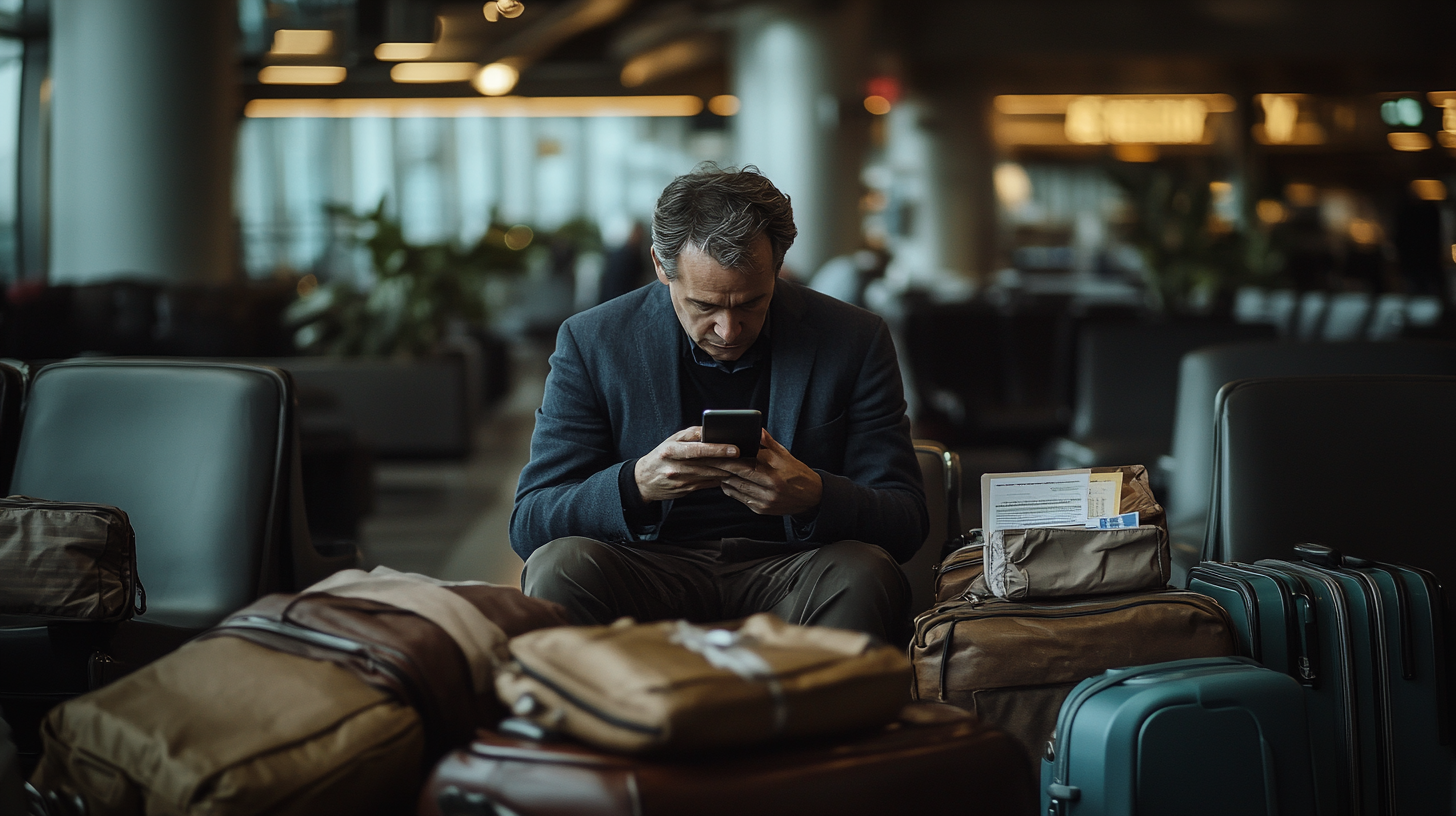
Emergency Contacts

Maintaining open lines of communication is critical for safety during business travel. Always have a list of emergency contacts readily available, including local emergency services, the nearest embassy or consulate, and key organizational contacts such as HR or a dedicated travel coordinator. Storing these contacts both digitally and on a physical card can be helpful in various situations. Enrolling in programs like the Smart Traveler Enrollment Program provides safety updates specific to the traveler’s destination and can assist in case of emergencies like natural disasters or political unrest. Being proactive by registering with such services ensures that travelers are informed and reachable. Reviewing comprehensive emergency preparedness guides for travelers can further enhance readiness for unexpected situations.
Local SIM Cards and Secure Connectivity
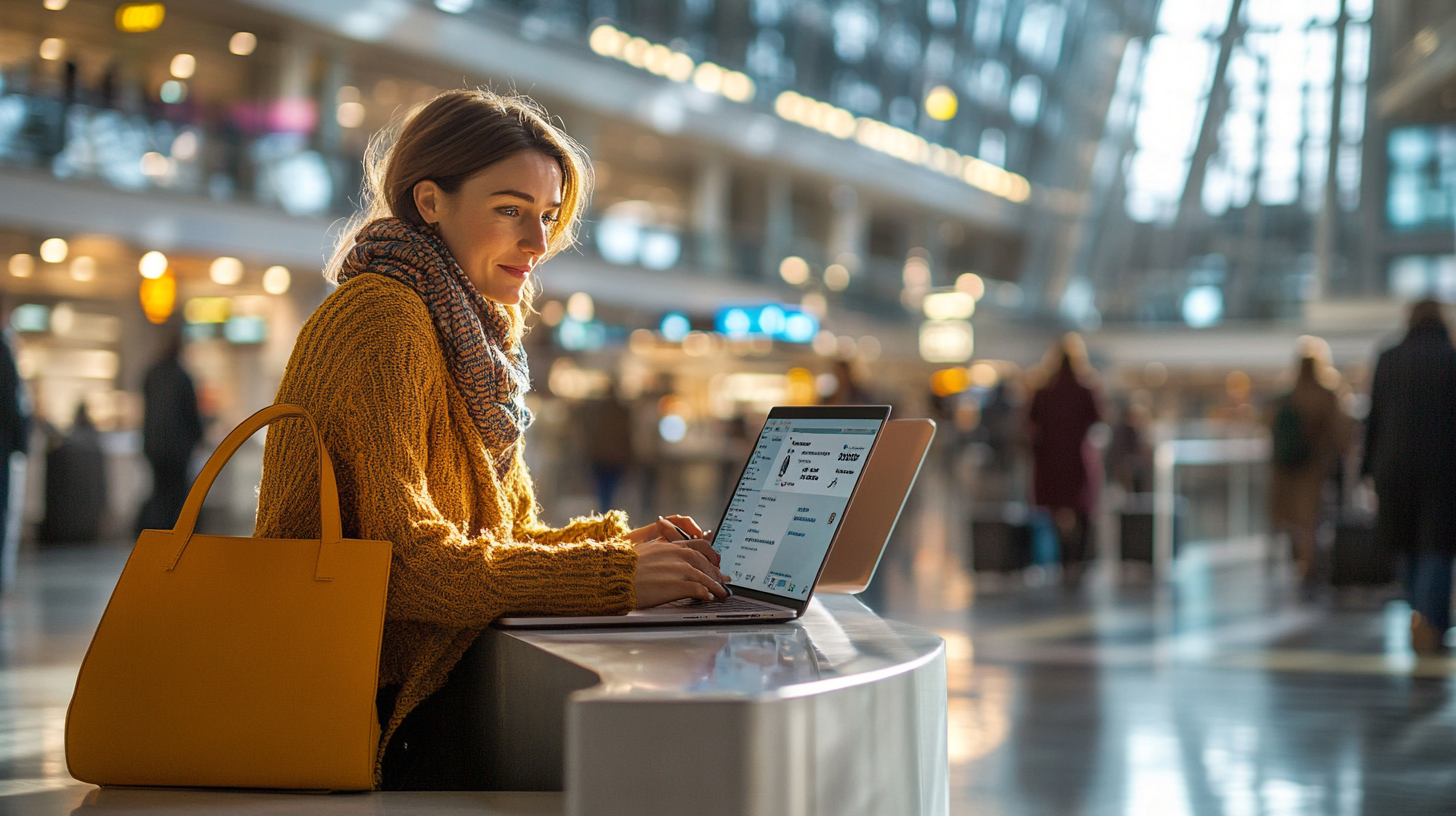
Obtaining a local SIM card upon arrival can ensure reliable communication and access to local services without incurring exorbitant roaming charges. It facilitates easier contact with local colleagues and services like taxis or delivery, which may require a local number. Using a VPN is vital to secure online activities, especially when handling sensitive work-related information over public or unsecured networks. A VPN encrypts data, making it more difficult for cybercriminals to intercept communications. Staying connected at all times allows travelers to receive timely updates on any safety advisories or changes in local conditions, ensuring they can adjust plans swiftly if necessary. Consult best practices for secure connectivity while traveling to implement effective measures for digital security.
Organizational Responsibility and Support
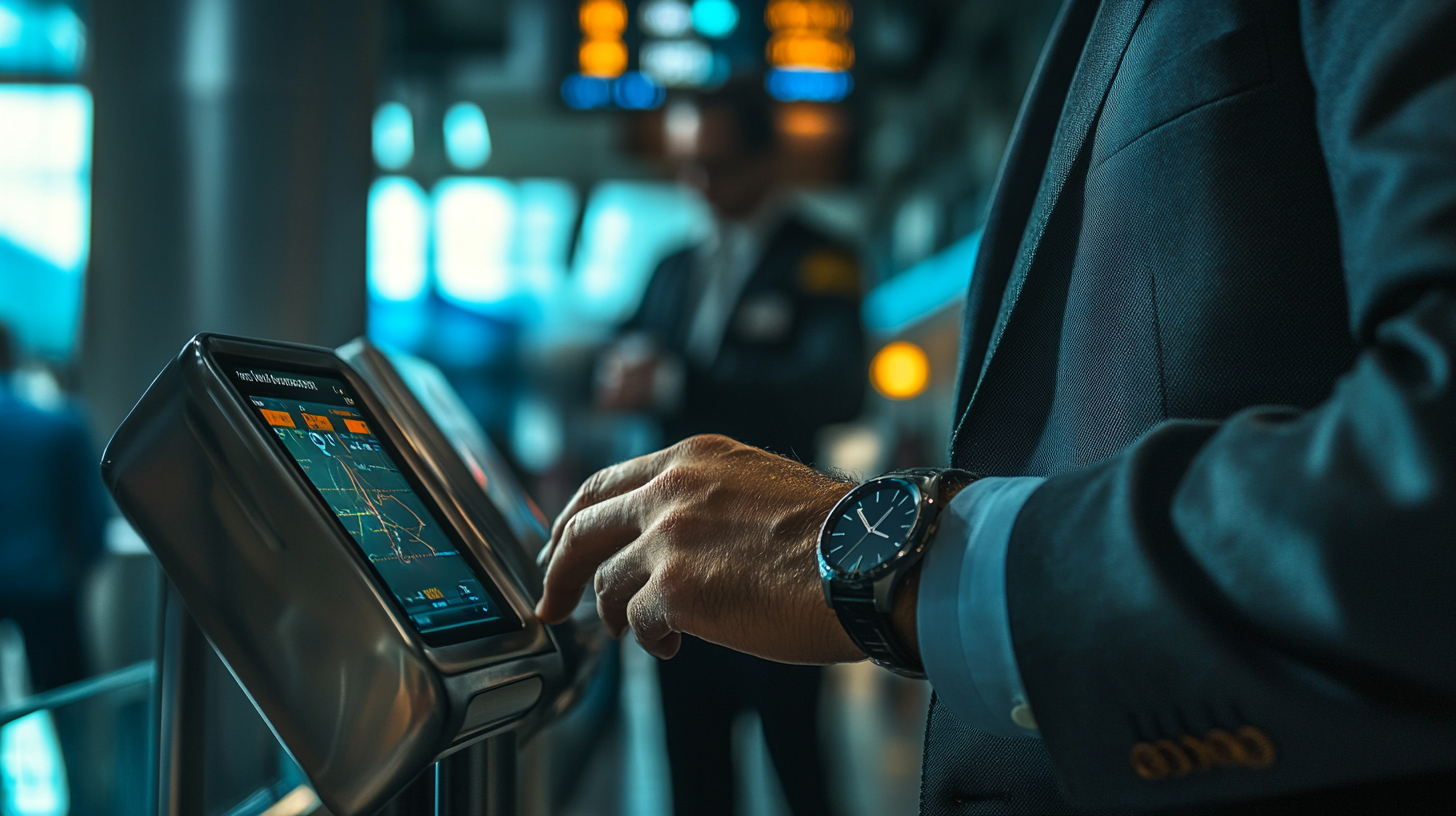
Enhanced Travel Safety Measures

Organizations have a duty of care to ensure the safety of their employees during business travel, which is not only ethical but also critical for maintaining workforce morale and productivity. This responsibility involves implementing robust travel risk management strategies, including conducting comprehensive risk assessments of destinations and providing tailored safety training to employees before departure. Training can cover a range of topics from cultural awareness to emergency response procedures. Utilizing innovations like GPS tracking and travel management apps can enhance real-time monitoring of traveler safety, enabling organizations to respond promptly in case of an incident. Leveraging advanced travel risk management solutions for businesses can help organizations manage these responsibilities effectively.
Risk Management Strategies

Effective risk management is a proactive approach to identifying and mitigating potential threats that could impact travelers and the organization. This involves thorough threat assessments considering the likelihood and impact of various risks, such as natural disasters, political unrest, health crises, or security threats. Organizations should establish clear protocols and contingency plans for various scenarios, ensuring that employees know exactly what steps to take in an emergency. Regularly updating these plans and communicating them to travelers is essential. Providing employees with resources and guidance, such as access to a 24/7 support line or emergency evacuation services, empowers them to navigate global complexities confidently. Employing comprehensive corporate travel risk management strategies can help organizations effectively protect their traveling workforce.
Post-Travel Considerations
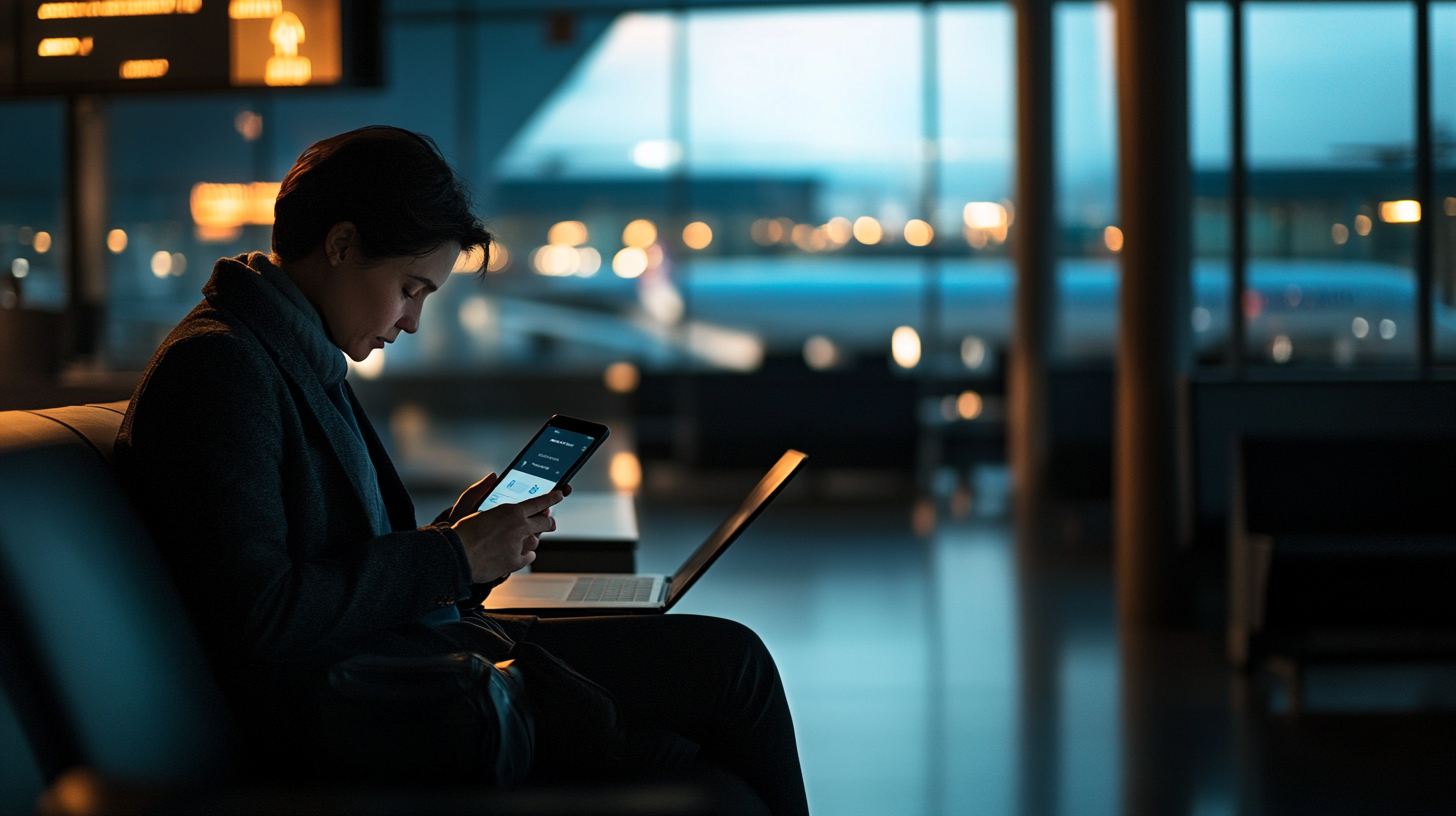
Health Monitoring and Consultation
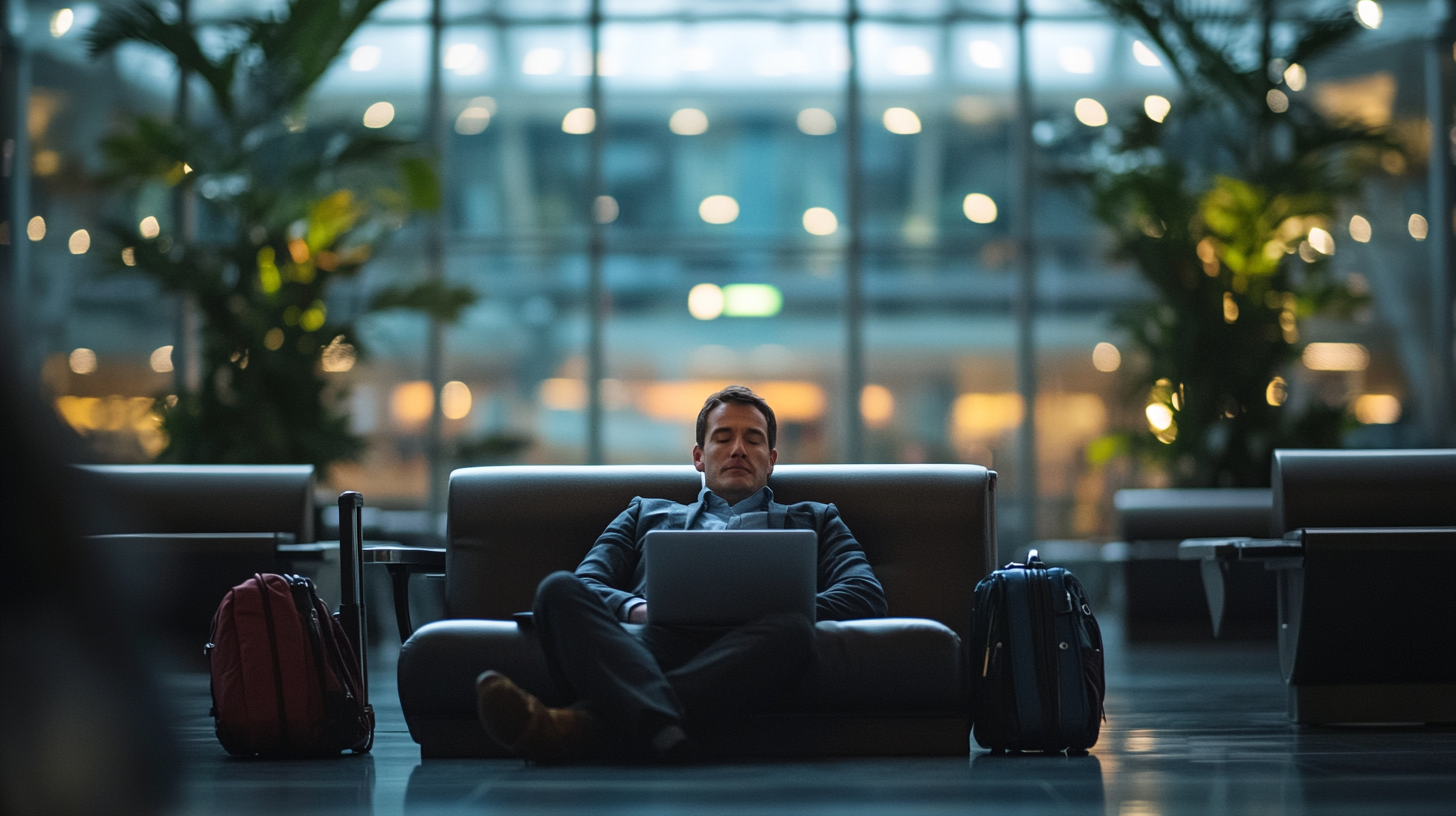
Post-travel health monitoring is an often overlooked but critical aspect of business travel safety. After returning from a business trip, especially from regions with prevalent health risks or outbreaks, travelers should vigilantly monitor their health for any unusual symptoms. Early detection of illnesses can prevent complications and reduce the risk of spreading contagious diseases to others. Consulting healthcare providers promptly if symptoms arise is crucial. Frequent travelers to the same destinations may be at risk for certain infections or long-term health issues and should discuss these potential risks with medical professionals. Follow-up vaccinations or screenings may be recommended. Accessing post-travel health assessment resources for business professionals can guide travelers in maintaining their well-being after returning home.
Final Thoughts
Ensuring safety during business travel requires a collaborative effort between travelers and their organizations. It’s a shared responsibility where preparation, continuous communication, and adherence to established safety protocols play vital roles. By prioritizing thorough preparation, staying informed of the latest advisories, and implementing comprehensive risk management strategies, business travelers can minimize risks and focus on achieving their professional objectives securely.
Follow us back to Seat 5A for more insights and updates on travel safety and strategies. Organizations that invest in traveler safety not only fulfill their duty of care but also enhance morale, reduce liability, and contribute to the overall well-being and effectiveness of their teams. The collective commitment to safety enables professionals to navigate the global business landscape with confidence and success.
This blog post was AI-written / human assisted.






